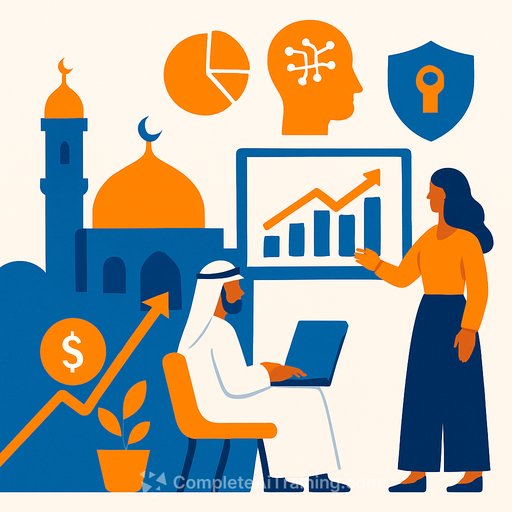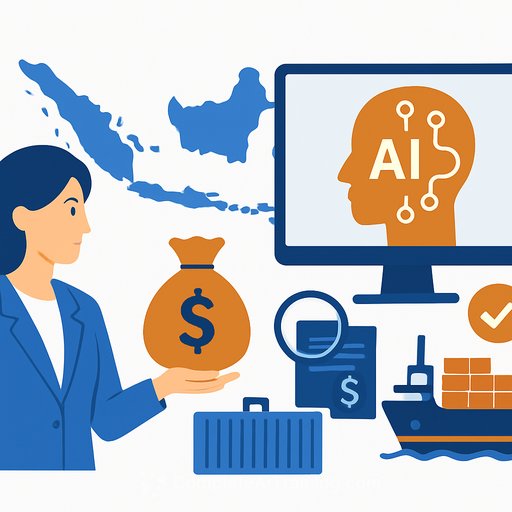Beyond Payments: How Data, AI, and Cybersecurity Are Redefining Finance in the Middle East
In the heart of old Dubai’s traditional souks, commerce thrived on trust and personal connections. Today, a new financial ecosystem is taking shape nearby—one driven by artificial intelligence (AI), stablecoins, and advanced technologies like quantum computing. Mastercard’s executive vice president and division president for East Arabia, J.K. Khalil, is at the forefront of this transformation, bridging heritage with innovation.
Collaboration is key, Khalil emphasizes. “In a dynamic region like the Middle East, opportunity is abundant. Success depends on learning continuously, listening closely, and leading with clear purpose.” This mindset supports governments building AI capabilities and fuels financial innovation where tradition meets technology.
From Ancient Trade Routes to Digital Highways
The Middle East’s prosperity has long depended on moving value securely across distances. Today, these “caravans” are digital. Every tap, click, and QR scan creates a seamless flow of money as fast as data.
Mastercard Move exemplifies this shift by offering a single, API-driven platform that enables banks, fintechs, and wallets to send and receive cross-border payments in near real-time. By eliminating hidden fees and settlement delays, the platform transforms cross-border transfers from a costly process into a driver of growth across the region.
Looking ahead, Mastercard is preparing for regulated digital currencies and stablecoins, integrating them into this trusted, borderless network. Khalil stresses that stablecoins must be embedded within trusted systems that protect users, resolve disputes, and operate smoothly across borders.
The Middle East as a Fintech Laboratory
This region stands out for its combination of forward-thinking governments, advanced digital infrastructure, and a population ready to adopt innovation. Mastercard’s Center for Advanced AI and Cyber Technology in Dubai, developed with the UAE’s AI and digital economy authorities, focuses on creating local solutions rather than just importing global ones.
These AI solutions help detect cyberattacks, data breaches, and fraud, enhancing security for governments, banks, merchants, and consumers alike. The rise of initiatives like the FAB x Mastercard AI Startup Challenge highlights growing local innovation, with winners like Teammates.ai delivering autonomous AI teammates to organizations.
The Invisible Revolution in Payments
AI has been part of Mastercard’s operations for over 20 years, but recent advancements have significantly increased its impact. AI tools now make payments smarter and safer without adding friction.
- Brighterion fraud prevention monitors transactions in real-time for over 60,000 merchants.
- Decision Intelligence Pro improves fraud detection accuracy by up to 300%.
- Account Intelligence Reissuance identifies at-risk cards before fraud occurs.
Tokenization technology complements these efforts, allowing merchants to avoid storing sensitive payment data while offering fast, secure checkouts. Early adopters like noon and Tap Payments have introduced biometric authentication through Mastercard’s Payment Passkey, aiming for one-click tokenized checkout across all markets by 2030.
Investing in Regional Talent
Khalil highlights that technology alone won’t sustain transformation—it requires skilled people. The EEMEA Mastercard Academy Hub, announced at Web Summit Qatar 2025, represents a strategic commitment to building local capabilities in cybersecurity, payments infrastructure, data analytics, and innovation design.
This approach supports self-sustaining fintech ecosystems that don’t just consume global solutions but create their own. Empowering local innovators helps address skills gaps and fosters a vibrant regional fintech landscape.
Supporting Small Businesses
Small and medium enterprises (SMEs) remain the backbone of the regional economy. Khalil notes, “Supporting SMEs is one of the most effective ways to drive inclusive growth.”
Mastercard’s partnerships with companies like Pemo, CredibleX, and Geidea provide SMEs with tailored solutions for expense management, financing, and payment acceptance. These efforts show results: 90% of UAE SMEs expect stable or growing revenue, and 70% actively seek credit to expand.
Providing the right tools helps SMEs thrive—and when they do, the entire economy benefits.
Embedded Finance Changing Daily Life
Financial services are increasingly integrated into everyday platforms such as mobility, ecommerce, gaming, and telecom. This embedded finance reshapes how people pay, borrow, and manage money—often seamlessly and without awareness.
Mastercard supports this integration through collaborations with regional leaders like e&, Careem, ABHI, and egabi FSI. Tokenization enables these platforms to offer financial services efficiently, without building full banking infrastructures.
Public-Private Partnerships Driving Progress
The region’s swift advancement owes much to close collaboration between governments and private companies. Khalil’s role involves aligning government ambitions with industry capabilities to create scalable digital transformation models.
Examples include the “Jaywan — Mastercard” co-badged cards with Al Etihad Payments and the Digital Partnership Program with Abu Dhabi Investment Office (ADIO), which aims to boost economic growth while enhancing government services.
These partnerships demonstrate how public and private sectors can work together to deliver lasting impact and co-create solutions that serve regional needs.
Adding Value Beyond Transactions
In a culture where relationships matter, Mastercard is moving toward delivering experiential value. Programs like the Mastercard Collection and the World Legend Mastercard cater to affluent consumers seeking exclusive access aligned with their lifestyles.
Nearly 75% of cardholders report feeling their best when engaging in passions such as culinary exploration and cultural immersion. Mastercard’s strategy focuses on building long-term affinity beyond any single transaction.
Preparing for the Quantum Future
Looking ahead, Mastercard’s focus includes emerging technologies such as quantum computing and autonomous living, aiming to create financial services that are intelligent, embedded, and adaptive to people’s needs across digital and physical environments.
Data, AI, and cybersecurity will work together to build more resilient and responsive financial ecosystems.
The Human Element in Technology
Khalil’s journey from software engineering to business leadership shaped his view that technology is ultimately about people, decisions, and outcomes. This perspective guides Mastercard’s initiatives to ensure tools solve real problems while remaining accessible, secure, and scalable.
As the Middle East’s cities and marketplaces evolve, Khalil envisions a future where the entrepreneurial spirit of the souk meets the potential of quantum computing, where trust is encoded in blockchain and protected by AI.
“The pace of change is faster than ever,” Khalil reflects. “Success requires staying curious, grounded in purpose, and never losing sight of the people behind the systems.”
Mastercard is helping to write the next chapter in a financial story that began thousands of years ago—a chapter promising meaningful transformation for 400 million people across the region, from merchants to tech entrepreneurs.
Your membership also unlocks:






